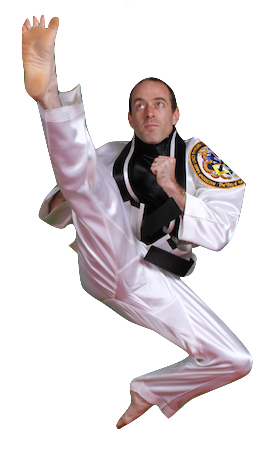
Nobility
When I was at Oxford, I was surprised to learn that the university owns aristocratic titles. Every now and then, officials seeking to replenish Oxford’s coffers would announce that a title was for sale. For the right price, a wealthy narcissist could purchase the right to be called something like “Earl” or “Duke.” Nobility had become a commodity.
Historically, of course, nobility was inherited. Your status in society--high or low--was determined at birth. So I suppose the sale of titles represents a small degree of progress: At least those with the means to do so are now permitted to buy entry into the aristocratic elite, regardless of their parentage.
In the United States, though, we like to think of ourselves as more meritocratic than that. We have no aristocratic titles, whether hereditary or for sale. This is the land of Horatio Alger, the country that long ago rejected the idea that you must own property to share in the rights of citizenship. You might question the accuracy of this self-conception. The income gap between rich and poor is much greater here than in England. And in a nation of nearly 300 million people, a few clans (Kennedys, Bushes, Clintons) have dominated presidential politics for over 40 years. But at the very least, the merit-based mythology represents an American ideal.
We recoil at the thought of hereditary titles (and laugh at the sale of them) because we believe nobility must be earned. It cannot be bought on eBay. There is no shortcut to stature.
The term “nobility” has an archaic ring to it, conjuring tales of knights and coats of arms. We don’t talk much about nobility in the modern world. But nobility has always been a character trait, and not just an honorific. And noble character is as important today as ever.
Nobility Comes From Within
The nobility that I am describing has nothing to do with the accumulation of titles and honors. The man who spends tens of thousands of British pounds to be known as a lord is driven by ego. True nobility is marked by humility.
This idea of nobility has been around for at least as long as aristocratic titles. Lao Tzu, the “Old Master” whose philosophy propels Taoism, said, “It is necessary to be noble, and yet take humility as a basis. It is necessary to be exalted, and yet take modesty as a foundation.” In other words, we do not buy or inherit the esteem of others. We earn people’s respect and admiration by declining to demand it. We build a noble character on the foundation of our modesty, not our ego.
Confucius put it this way: “The noble man is pained over his own incompetency; he is not pained that others ignore him.” Those who exult in titles and accolades, or who trumpet their supposed greatness, wish solely for public attention. But those who are pained over their own incompetency recognize that they are imperfect. They dedicate themselves to constant self-improvement, not self-promotion. And they are seen by others as noble precisely because they seek no such recognition.
Consider, for example, Donald Trump’s ostentatious displays of wealth. His name is on dozens of buildings. In books and on “reality” television shows, he cultivates his public image. He posed for an Annie Leibovitz photograph surrounded by trophies: His expensive sports car parked on a tarmac beside his enormous private jet, with his model wife standing on the airplane stairway wearing a gold bikini. He is nothing if not “pained that others ignore him.” Even if you admire his financial success, you would be hard-pressed to argue that there is anything noble about him.
Compare Trump’s egomania to the humble generosity of quiet donors. In December of 2007, a man approached a Salvation Army volunteer in Exton, Pennsylvania. The man said that 40 years earlier he had been at an Army outpost and had been grateful to receive coffee and doughnuts from the Salvation Army. He handed the volunteer a $10,000 check, and told him that over the years he had given about $90,000 to the organization. He asked to remain anonymous.
Stories like this are surprisingly common. A schoolteacher will die and leave hundreds of thousands of dollars to her local library. A university will receive a multi-million dollar anonymous gift. In each instance, the donor is not seeking acclaim. And in every case, the story garners widespread publicity. The donor is exalted, yet takes modesty as a foundation. Nobility, then, requires the suppression of the ego. It requires you to sacrifice a part of yourself.
Nobility Requires Self-Sacrifice
The late Grandmaster Haeng Ung Lee, known to his many students as Eternal Grandmaster, liked to tell a story about his departure from South Korea in 1962. Before leaving for the United States, he visited his own master. His master gave him two gifts: a candle and a bar of soap. Eternal Grandmaster would laugh when he recalled worrying that there must not be electricity or cleaning supplies in America.
After years of dedicating himself to his growing number of students worldwide, Eternal Grandmaster finally understood the significance of his master’s gifts. Both the soap and the candle, he realized, sacrifice themselves for your benefit. The soap makes you clean but dissolves into the water. The candle brings you light but melts under the heat of the flame. The martial arts master, he now understood, must sacrifice himself for the benefit of his students. Any leader who seeks to serve his followers with nobility must be willing to do the same.
This lesson lives on in the traditions of the American Taekwondo Association, the organization that Eternal Grandmaster founded just a few years after he arrived in the United States. The first major goal that most students set is to earn the rank of black belt. And when they finally achieve that goal, they are justifiably eager to display the belt on their waist. But before being granted that public recognition, they participate in a candlelight ceremony. During that ceremony, they are reminded of the symbolism of the candle and the soap.
Similarly, certified Taekwondo instructors are distinguished by a black collar on their uniforms. It is naturally exciting to wear that collar for the first time. But the collar is more than a public display of your accomplishments. It encircles your neck like a yoke, a constant reminder of the sacrifice required of an instructor.
We intuitively understand the nobility of sacrifice. While we may admire people who pursue lucrative careers and gain financial success, we reserve a special respect for those who labor on behalf of others and receive little personal reward. We are scandalized when a public official receives an unseemly salary because we believe public service entails sacrifice. And we applaud the Catholic Church’s decision to fast-track Mother Teresa’s sainthood because her life was defined by selfless nobility.
Nobility Means Taking the High Road
For a few years when I was a young child, I had a habit of hitting or kicking people when they angered me. The school I attended at the time had a very low tolerance for violence, and a few times I was suspended for a day or two. I remember trying to explain to my father what had happened when he arrived home. In elaborate self-justifying detail, I would describe the annoying behavior of the person I had hit. My dad’s response was always the same: “You can’t change other people. You can only change yourself.”
That admonition echoes the words of Confucius: “The noble man seeks what he wants in himself; the inferior man seeks it from others.” Too often we become fixated on the failings of those around us. We use those deficiencies to justify our own petty or counterproductive behavior. We sneak into the office late or spend the whole morning checking email instead of working, and blame our similarly negligent colleagues: Why should I exert myself if they don’t?
An eight-year-old student one day told me he had been getting into trouble in school. Jimmy had been training with me for about nine months. From the beginning, I was impressed by his focus and enthusiasm. He had a cherubic grin that lit up his face when he learned something new. He behaved with exquisite discipline in class, always raising his hand when he had something to say and listening eagerly to what others said.
I had been surprised when, a few weeks into his training, Jimmy’s mother told me how much Taekwondo had helped him. She said that he had been diagnosed with attention deficit and hyperactivity disorder. Doctors had tried various medications, but nothing seemed to work. One psychiatrist had refused to work with Jimmy because he was too obstinate.
“He has bombed out of every program we’ve enrolled him in,” his mother said. “Until this one.”
Somehow these problems evaporated when Jimmy stepped into the dojahng. But outside of Taekwondo class, he still struggled. For a while, his behavior at school improved dramatically. Soon, though, his difficulty with impulse control re-emerged.
Jimmy told me that he had gotten into fights at school a couple of times in the last week. The provocations were minor. A boy stepped ahead of Jimmy in the lunch line. Another boy pushed Jimmy on the playground. Each time, Jimmy responded violently. He punched the lunch line boy in the nose. He kicked the kid on the playground.
When I asked Jimmy to explain his behavior, he blamed the other person.
“He cut on me in line,” he said of the first boy. “It was self-defense.”
“No it wasn’t,” I said. “It was revenge.”
I explained that violence is only justified as self-defense if it is necessary to protect yourself from injury. The boy who cut in line posed no physical threat. Even the boy who pushed Jimmy had then walked away before Jimmy kicked him in the back.
“Did you have to hit these kids to avoid being hurt?” I asked.
“No, I guess not.”
“What could you have done instead?”
“I could have gone to the teacher or the principal.”
“And if you had done that, who would have been punished, you or the other boy?”
“The other boy.”
“Instead, who was punished?”
“Me.”
“Which would you prefer?” I asked.
The point of this Socratic dialogue was twofold: First, our egos too often interfere with our goals. Jimmy was so set on vindicating his wounded pride that he made things worse for himself. Second, the behavior of others does not excuse our failures. The other boys were wrong to cut in line and to push Jimmy. But he debased himself by seeking revenge.
Not all confrontations are avoidable. But nobility requires us to assess our motives. Jimmy did not kick the boy to prevent the boy from hurting him. He kicked him because he was angry about being pushed. He acted in what criminal lawyers call “the heat of passion.” Had he paused to compose himself and reflect on his feelings, he could have made a wiser move.
Under the law, acting in the heat of passion can mitigate your behavior. But it cannot excuse it. For example, if you kill someone without justification you are guilty of murder. But if someone has “adequately” provoked you (the classic example is catching someone in bed with your spouse), and if you kill that person in the heat of passion, then you are guilty of manslaughter. This distinction could mean you serve eight years in prison instead of life. But you are still guilty of a felony. And you still will have the rest of your life to regret what you have done. It makes far more sense to reflect before acting than to have to reflect forever after.
Not all choices have such deadly consequences. But all decisions benefit from a moment’s pause. Our impulsive reactions often are counterproductive because they are driven by ego. The advice to “count to ten” before acting recognizes this fact. That pause enables us to act rationally rather than emotionally. It allows us to assess our motives. It prevents us from taking steps that lead us away from our goal.
Nobility means possessing the inner calm to pause and reflect. It means recognizing that victories are often won without battle. As Sun Tzu wrote in The Art of War, “He will win who knows when to fight and when not to fight.” Not all conflicts are avoidable. But fighting an unnecessary battle is a form of defeat.
In the Songahm style of Taekwondo, the red belt comes just before black belt. My instructor used to say that the red represents danger. Like a fire, he said, a student with a red belt is powerful but difficult to control. The red belt has developed potentially devastating physical skills but does not yet have nobility to use those skills wisely.
That was certainly true of me. As I approached black belt, I became increasingly confident in my ability to win a fight. And the opportunities to fight were abundant. I attended a public school where I was an ethnic minority. The Latinos who comprised the majority bore resentments against the relatively privileged white students. Moreover, I was a tempting target for bullies: At age twelve, I was 4’8” tall and weighed about ninety pounds.
It only took a small spark to ignite a fight. Walking down the hall at school, I would make eye contact with a belligerent kid coming toward me.
“What are you looking at?” he would demand.
If I chose to respond in a similarly bellicose tone, the confrontation would quickly become physical. (It wouldn’t last long, though. Bullies are not usually accustomed to getting hit hard by the people they target. One good punch often was enough to get them to back down.)
Back then, it seemed inconceivable to me that I would ever go for more than a few months without a fight. Provocations were plentiful. Insults and angry glances flowed in a steady stream. Confident that I would emerge unscathed, I saw little reason to take the high road.
But shortly after I became a black belt, something changed. It was not that people stopped trying to provoke me. If anything, the invitations to fight became more frequent. People just couldn’t believe that a black belt would be much help to a short, skinny kid, so they wanted to see me prove myself. But I no longer felt I had anything to prove.
I realized that I could defuse the angry glances in the hallway with a quick nod of my head and a casual greeting. (This skill has proved surprisingly useful over the years. My wife and I lived for a year in a low-income community in the northeast. When we walked downtown in the evening, we often passed tough-looking young men. Their menacing stares and muttered obscenities seemed to threaten imminent conflict. But when I nodded and said, “How’s it going?” they typically responded in kind and walked past us.) When other kids tried to goad me into fighting them, I would simply decline. Their insults to my masculinity, intended to provoke me, had no effect. I had internalized the teaching of Lao Tzu: “Simply because he does not compete, no one can compete with him.”
True nobility is internalized. The Japanese swordsman Miyamoto Musashi wrote that “it is essential to make your ordinary bearing the bearing you use in martial arts, and make the bearing you use in martial arts your ordinary bearing.” He meant that the lessons learned on the mat should transform your character.
The martial arts masters I know have a presence that is difficult to describe. They are at once relaxed and powerful, quiet and commanding. To quote Lao Tzu once again, the master “withdraws himself but comes to the fore, alienates himself but is always present.” This contradiction comes from humility, self-sacrifice and the ability to pause and reflect before acting. It comes, in other words, from nobility.


